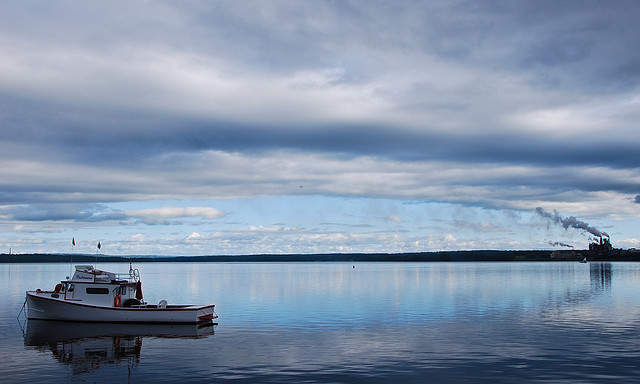Nova Scotia is a small, interconnected, even inbred, political, economic and social ecosystem.
So it was intriguing last month to hear former Empire CEO Paul Sobey publicly rail against the dense “haze of emissions” spewing forth daily from Pictou County’s Northern Pulp mill, stinking up the community in which he lives and in which his family’s super-successful grocery chain is headquartered.
If Northern Pulp can’t get its act together, Sobey told the CBC, “the government of Nova Scotia is going to have to turn around and protect the health of the people of the province.”
The irony, of course, is that Northern Pulp (née Scott Paper) was midwifed into existence 47 years ago by Frank Sobey, Paul’s grandfather and original family empire builder. Frank also served as president of Industrial Estates Limited, a powerful Stanfield-era industry-luring Crown corporation designed to drag our province, “kicking and screaming,” into the 20th century.
Frank, not to put too fine a point on it, used his considerable clout to also make sure his hometown got more than its fair share of those lured industries.
Including such infamous sinkholes as Clairtone Sound, Peter Munk’s ahead-of-its-time-TV manufacturing facility that swallowed more than $20 million in scarce 1960s government dollars before disappearing into legend and our accumulated debt.
Even the era’s “success” stories carry their own toxic half-life. Michelin Tire, which has dictated labour law and funding concessions to provincial governments since the ’60s, is currently “significantly” reducing its Pictou County operations, laying off 500 more workers.
And then, of course, there is Northern Pulp, which has transitioned through multiple owners since Frank Sobey wooed Scott here with what a 2010 King’s Journalism School investigation called “cheap water, free water infrastructure, cheap wastewater treatment, property tax exemptions and a huge tract of crown land.”
Under whatever owner, the operation has never transitioned out of its dependence on Nova Scotia governments for funding — since 2009 alone, Nova Scotia has ponied up $111.7 million in loans and grants — or to look the other way while it dumps toxic waste in our water and exceeds emissions regulations in our air.
The lesson of Northern Pulp isn’t just environmental. It’s also about how those in power have done business here for generations. Is it a lesson too late for the learning?
This article first appeared in Stephen Kimber’s Halifax Metro column.
Photo: Ann Baekken/flickr



